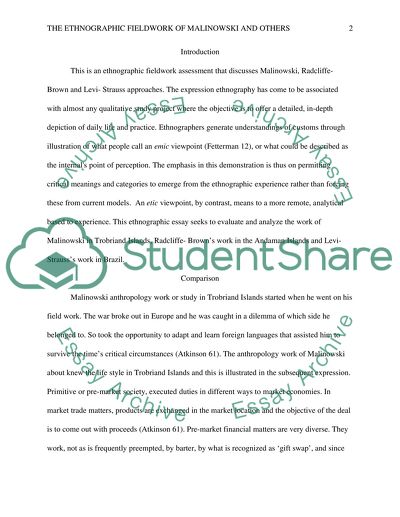Cite this document
(“Compare (Similar aspects) the ethnographic fieldwork of Malinowski, Research Paper”, n.d.)
Retrieved from https://studentshare.org/anthropology/1494744-compare-similar-aspects-the-ethnographic-fieldwork
Retrieved from https://studentshare.org/anthropology/1494744-compare-similar-aspects-the-ethnographic-fieldwork
(Compare (Similar Aspects) the Ethnographic Fieldwork of Malinowski, Research Paper)
https://studentshare.org/anthropology/1494744-compare-similar-aspects-the-ethnographic-fieldwork.
https://studentshare.org/anthropology/1494744-compare-similar-aspects-the-ethnographic-fieldwork.
“Compare (Similar Aspects) the Ethnographic Fieldwork of Malinowski, Research Paper”, n.d. https://studentshare.org/anthropology/1494744-compare-similar-aspects-the-ethnographic-fieldwork.


